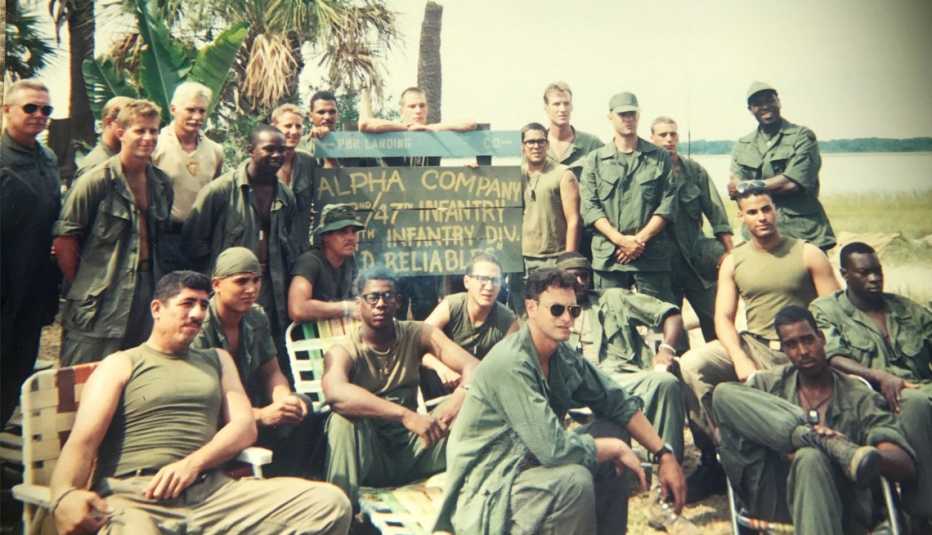AARP Hearing Center
After serving as a Marine for two decades, Dale Dye noticed that Hollywood lacked insight in portraying the psychological and emotional toll of war on-screen.
“I decided, I’m going to go out to Hollywood. But I had no idea how movies were made,” Dye says.
Luckily, he had a friend who was working on the 1986 film Invaders from Mars, and the director, Tobe Hooper, needed help with a scene that depicted the Marine Corps swooping in to kill the martians.
The chance opportunity gave Dye a much-needed foot in the door, allowing him to learn about filmmaking and to obtain his first acting credit. For the attack scene, he tapped a unit of Marine Reserves stationed in Long Beach, California, who naturally knew how to portray what the scene required.


You can subscribe here to AARP Veteran Report, a free e-newsletter published every two weeks. If you have feedback or a story idea then please contact us here.
Dye’s big break
Soon after, while thumbing through a film trade publication, Dye saw that writer-director Oliver Stone was planning a movie based on his experience as a combat infantryman in Vietnam. He tracked down the director and made his pitch.
The idea, which would later turn into his advisory firm Warriors Inc., was a training program to help actors better understand what happens in the battlefield by fully immersing them in an experience similar to his own real-life deployments.
“[Stone] said, ‘OK, I’m going to give you three weeks in the Philippines. And then when they come down out of your training, they damn well better be [like] you and me when we were 19 years old,’ ” Dye recalls.
The group of actors who first experienced his training included Charlie Sheen, Forrest Whitaker, Johnny Depp, Tom Berenger and Willem Dafoe.
“I pulled no punches,” Dye says, noting that he would allow up to two hours of sleep a night and two meals a day only if they followed his commands. “We had arranged the last day of training to be the first day of filming because I don’t want to give them a night at a hotel and lose it. And I knew we had something special here because the performances were just gut-wrenching.”


































































More on Home and Family
The Best World War II Movies Ever Made
Settle in for epic storytelling — from Omaha Beach to Iwo JimaExcerpt: 'They Were Soldiers,' inspirational stories from 48 Vietnam vets
Bestselling author and distinguished war correspondent collaborateAARP’s Guide to the Vietnam Veterans Memorial in D.C.
Plan your trip to the iconic wall in Washington to meet veterans and honor the war's fallen